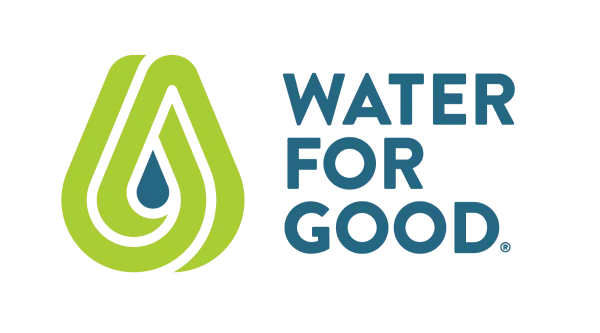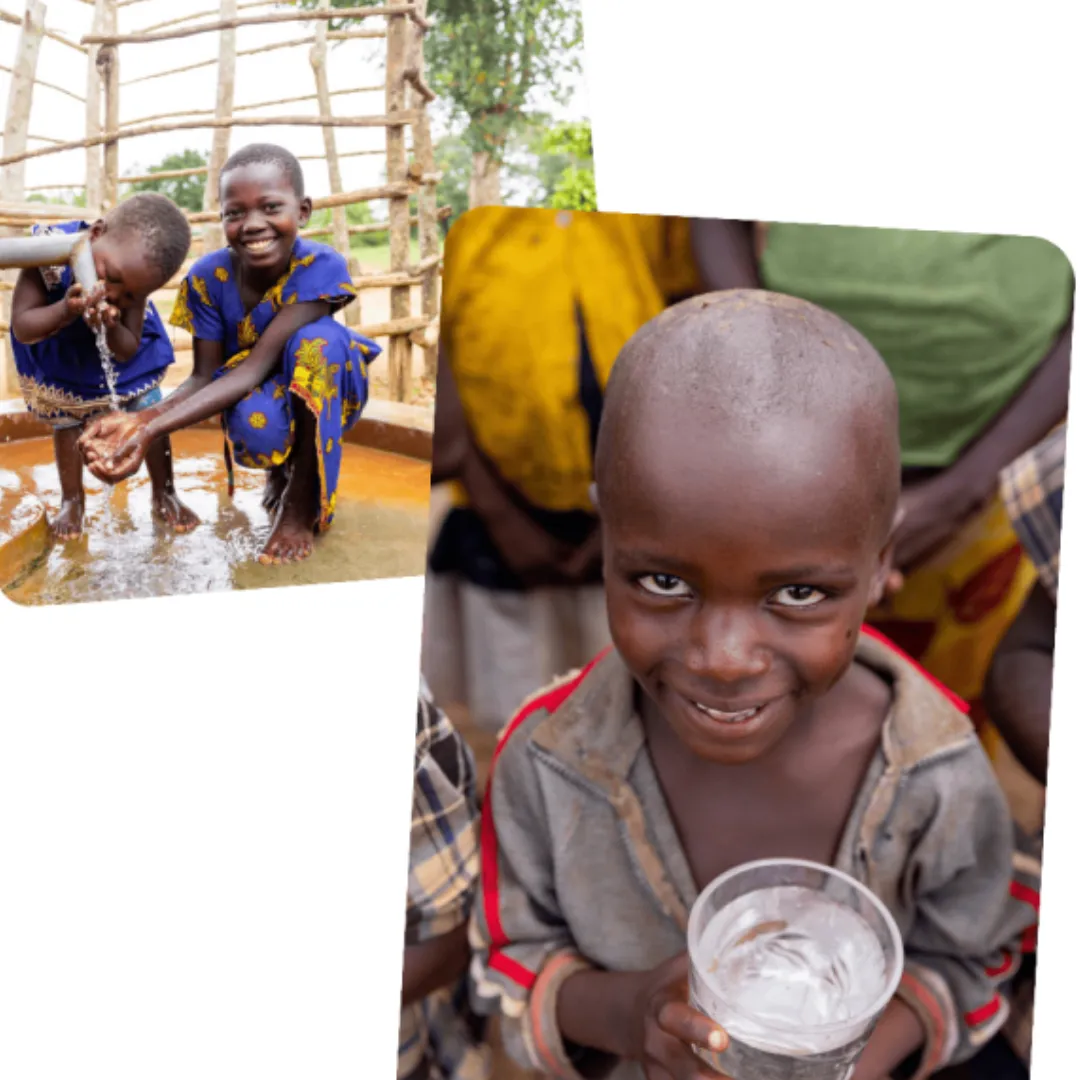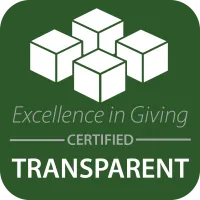Welcome to Tyson's Journal
Read, Learn & Explore
Powered by

Explore My Most Recent Journal Entries Below
Hello and welcome! I'm Tyson Wise from Water For Good, and I’m thrilled to have you here. At Water For Good, we’re dedicated to providing lasting access to
safe, clean water
across the Central African Republic, Uganda, Tanzania, Ethiopia, and Cambodia.
This journal is a space where we share powerful stories of impact, the challenges we face, and the inspiring communities and people working together to create a better future. Whether it’s updates from the field, reflections on progress, or ways you can get involved, we invite you to follow along and be part of this journey toward
sustainable safe water solutions.
Together, we’re making a difference—one well, one community, and one story at a time.

World Water Day Special: Why Clean Water is a Basic Human Right
The Global Water Crisis: Why It Matters
Imagine waking up every morning and walking miles to fetch water—only to find it contaminated. For millions of families, this is not just a possibility—it is a daily struggle. The lack of access to clean water creates devastating consequences that affect health, education, and economic stability, trapping communities in a cycle of hardship that lasts for generations.
Here’s why addressing the water crisis is urgent:
🚨 Health Risks: Unsafe Water is a Silent Killer
Waterborne Diseases: Contaminated water carries bacteria and parasites that cause deadly illnesses such as diarrheal diseases, cholera, typhoid, and dysentery.
Children Are the Most Vulnerable: Every year, 1.2 million people die from water-related diseases—many of them are children under five who lack the immunity to fight these infections.
Malnutrition and Stunted Growth: Unsafe water often leads to chronic diarrhea, which prevents children from absorbing nutrients, stunting their growth and development.
Maternal and Infant Health: Pregnant women who consume or bathe in contaminated water face higher risks of birth complications, infections, and infant mortality.
📚 Education Disruptions: Water Shouldn’t Be a Barrier to Learning
Time Spent Fetching Water: Millions of children—especially girls—spend hours each day walking long distances to collect water instead of going to school.
School Absenteeism Due to Illness: Repeated exposure to unsafe water causes frequent illnesses, keeping children home and preventing them from completing their education.
Lack of Hygiene Facilities in Schools: Many schools lack proper handwashing stations and toilets, making it difficult—especially for girls—to attend regularly, particularly during menstruation.
The Cycle of Poverty Continues: Without an education, these children struggle to break free from poverty, limiting their opportunities for a better future.
💰 Economic Barriers: The Cost of Water Scarcity
Lost Work Hours: Families without clean water spend an average of 200 million hours per day collecting water, reducing time available for jobs and businesses.
Women Bear the Burden: In many communities, women and girls are responsible for water collection, making it harder for them to work or pursue education.
High Medical Costs: Treating waterborne illnesses drains household income that could be used for food, education, or starting a small business.
Stalled Economic Growth: Communities without reliable water struggle to develop agriculture, sanitation, and infrastructure, preventing local economies from thriving.
Water for Good’s Mission: Making Water Reliable
At Water for Good, we don’t just provide water—we ensure it stays accessible for generations. Many water projects fail because they lack long-term maintenance, leaving communities without the resources to sustain their wells. That’s why our mission goes beyond drilling—we focus on lasting solutions that empower communities and create real, sustainable change.
💧 Sustainable Water Access: More Than Just Wells
Ongoing Maintenance & Repairs: Unlike many water projects that stop after a well is drilled, we ensure that wells remain functional, achieving a 95% operational rate—far surpassing the global average of 60%.
Regular Servicing & Monitoring: Our teams conduct scheduled maintenance to prevent breakdowns, ensuring communities never have to revert to unsafe water sources.
Reliable Infrastructure: We implement durable water systems, including hand pumps and solar-powered water stations, that are built to last in even the most challenging environments.
🌍 Community-Led Solutions: Empowering Local Leadership
Training Local Technicians: We equip local leaders and technicians with the skills needed to repair, maintain, and manage their own water systems.
WASH Education (Water, Sanitation, and Hygiene): Communities receive ongoing education on proper hygiene, sanitation practices, and water conservation to maximize the health benefits of clean water.
Ownership & Responsibility: By putting leadership in the hands of community members, we ensure long-term success and reduce dependence on outside aid.
🚰 Expanding Reach: More Water, More Lives Transformed
Bringing Safe Water to Thousands: In 2024 alone, we provided 85,000 people across five countries with reliable, safe water—but millions are still waiting.
Scaling Our Impact: We’re actively working to expand water access, reaching more remote and underserved regions.
A Future Without Water Scarcity: With the help of donors and partners, we are moving closer to a world where no one has to walk miles for water.
🌟 The Impact of Clean Water: Transforming Lives
Access to reliable, safe water changes everything. It doesn’t just quench thirst—it creates opportunities, improves health, and strengthens economies. Here’s how:
🏥 Healthier Families
Dramatic Decline in Waterborne Illnesses: Clean water reduces cases of cholera, diarrhea, and typhoid, leading to fewer hospital visits and medical costs.
Better Nutrition & Hygiene: With safe water, families can cook, clean, and bathe without fear of contamination.
Improved Maternal & Infant Health: Pregnant women have safe water for drinking and childbirth, reducing the risk of infections and infant mortality.
📚 Educational Success
More Time for Learning: Children—especially girls—no longer have to spend hours fetching water, allowing them to attend school consistently.
Better Concentration & Performance: With clean water, students stay healthy, miss fewer school days, and achieve better grades.
Empowering Future Generations: Education breaks cycles of poverty, giving children a chance at brighter futures.
💼 Economic Growth & Stability
More Productive Work Hours: Families can focus on jobs, businesses, and farming instead of spending hours fetching water.
Opportunities for Women: Women, who often bear the responsibility of collecting water, now have time to work, learn skills, and contribute financially to their households.
Stronger Local Economies: Businesses grow, agriculture thrives, and entire communities benefit from the economic boost clean water provides.
Clean water is not a privilege—it is a human right. On World Water Day 2025, let’s recommit ourselves to ensuring that no child, no family, and no community is left behind. Together, we can end the water crisis for good.
💧 [Donate Now] Join the movement. Let’s make water accessible for all. 💧
Our Commitments
Safe, Reliable Water
Access to safe water is changing lives in the places that need it most.
Healthy Homes
When families adopt simple, healthy habits, they create healthier households and brighter futures.
Thriving Communities
Reliable water and sanitation boosts economic growth, empowers women, and helps communities and churches flourish.
Explore The Water For Good Impact To Date
5 Countries
We currently and proudly serve 5 countries, and are always looking to grow.
620,000 People
Have received access to basic safe water.
300,000 People
Have received access to improved sanitation and hygiene.
1,000,000+ People
Have reliable, safe water through our regular maintenance services

How We Work & What Is Our Vision?
We help establish sustainable solutions for long-term change through innovation and locally-led collaboration.
We work specifically in the hard-to-reach places of Cambodia, Central African Republic, Uganda, Ethiopia and Tanzania.
Our vision is that every child experiences reliable, sustainable safe water, a healthy community, and God’s love.

Change Starts With You!
Our work is crucial because the water crisis is unacceptable. Let’s end the water crisis, empower lives, and transform communities, together.
